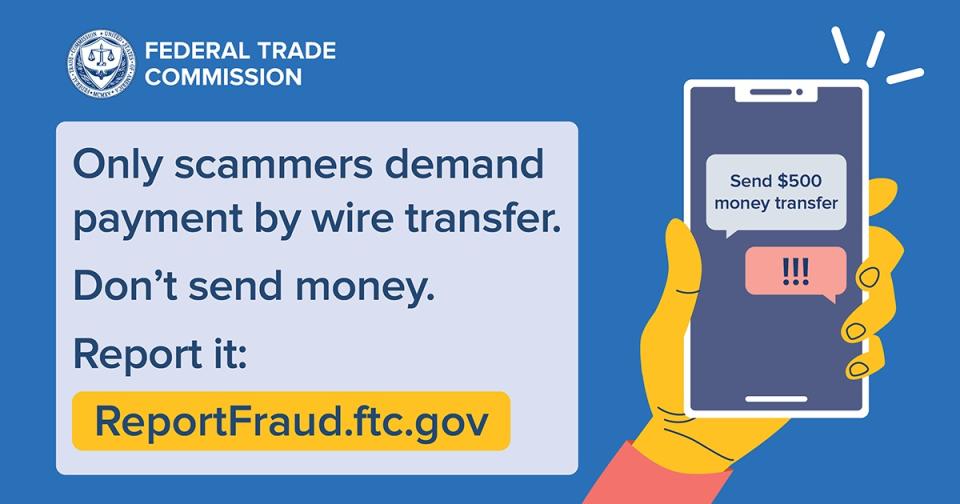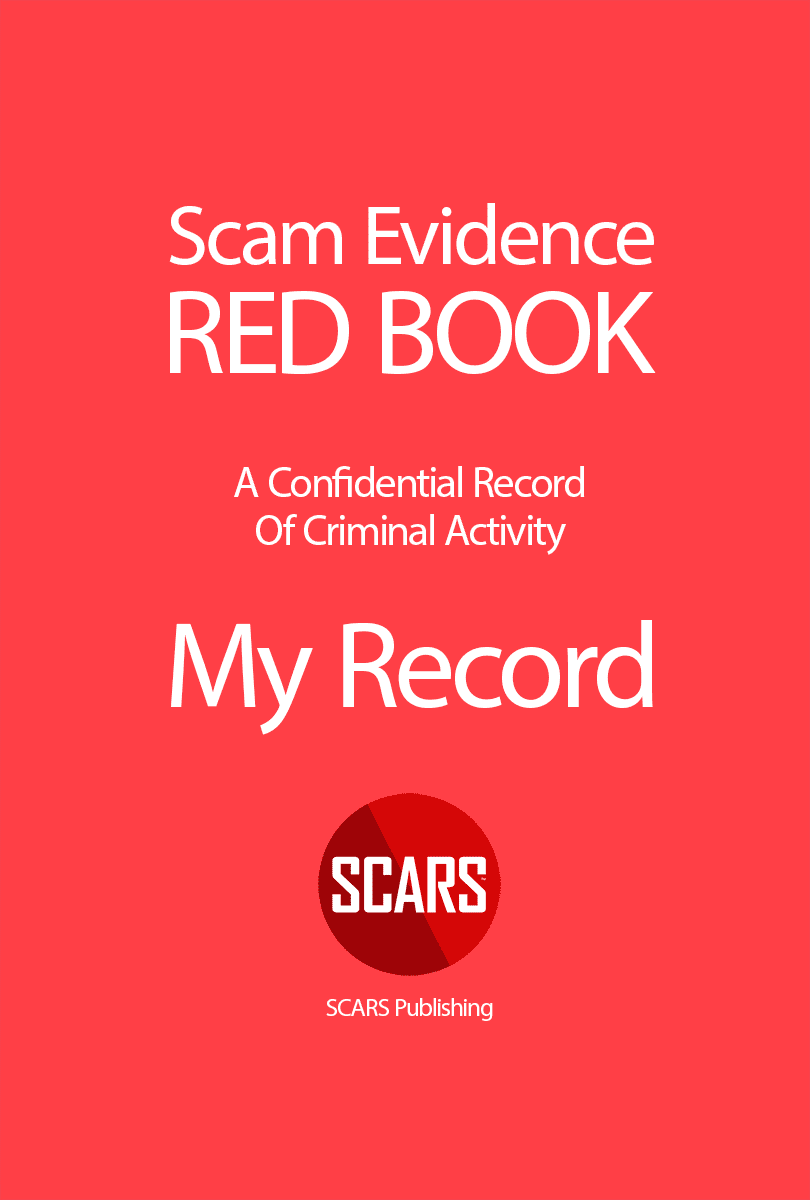FTC Says Walmart Allowed Fraud Involving Money Transfers
Scammers want payments that are quick, anonymous, and tough to reverse. In other words, scammers are asking for wire transfers. That’s why money transfer businesses like Walmart need to warn people about fraud risks and train employees to spot scams. And that’s why the FTC is suing Walmart in federal court.
The FTC says Walmart has known for many years that scammers use its locations to get money for a grandparent, romance, and other scams, but it didn’t properly warn people or train its employees to prevent fraud. According to the FTC, many Walmart locations didn’t display or give people information about potential fraud, which could have stopped them from sending money to a scammer. The company didn’t consistently post warning signs, put out fraud awareness brochures, or use the required money transfer “send” forms with front-page fraud warnings.
For years, according to the FTC, Walmart even looked the other way when scammers picked up money at stores. The FTC says that a single Walmart employee could process hundreds of thousands of dollars of customer financial transactions a day. But for many years, the company didn’t confirm that employees who handle money transfers had the correct — or current — training before they started processing transactions. Walmart employees processed tens of millions of dollars in fraud-related wire transfers annually for many years, according to the FTC.
That’s why the FTC is asking the court to order Walmart to return money to people who were scammed, pay civil penalties, and stop violating the Telemarketing Sales Rule and FTC Act.
If this happens the way it did with Western Union and MoneyGram, this could result in major refunds to consumers for money sent to scammers through Walmart!
To Protect Against Wire Transfer Fraud
- Never wire money to anyone who claims to be from a government agency like the IRS, SSA, or Customs and Border Patrol.
- Don’t wire money to a stranger or someone you haven’t met in person, no matter what reason they give.
- Never wire money to someone who tries to sell you something over the phone. It’s illegal for a telemarketer to ask you to pay with a wire transfer.
If you lost money: the way to report this is first with your local police – they are your first responders, then always report all scams to the FTC at https://reportfraud.ftc.gov/#/?orgcode=SCARS and to SCARS at www.Anyscam.com – optionally, you can also report to the FBI at www.IC3.gov or 1-800-CALL-FBI

FULL FTC PRESS RELEASE
FTC Sues Walmart for Facilitating Money Transfer Fraud That Fleeced Customers Out of Hundreds of Millions
The Federal Trade Commission today sued Walmart for allowing its money transfer services to be used by fraudsters, who fleeced consumers out of hundreds of millions of dollars. In its lawsuit, the FTC alleges that for years, the company turned a blind eye while scammers took advantage of its failure to properly secure the money transfer services offered at Walmart stores. The company did not properly train its employees, failed to warn customers, and used procedures that allowed fraudsters to cash out at its stores, according to the FTC’s complaint. The FTC is asking the court to order Walmart to return money to consumers and to impose civil penalties for Walmart’s violations.
“While scammers used its money transfer services to make off with cash, Walmart looked the other way and pocketed millions in fees,” said Samuel Levine, Director of the FTC’s Bureau of Consumer Protection. “Consumers have lost hundreds of millions, and the Commission is holding Walmart accountable for letting fraudsters fleece its customers.”
In addition to its retail business, Walmart offers financial services to consumers in its stores, including money transfers, credit cards, reloadable debit cards, check cashing, bill payments and more. Walmart acts as an agent for multiple money transfer services, including MoneyGram, Ria and Western Union, offering some services under its own brand, like “Walmart2Walmart” and “Walmart2World.” According to the complaint, tens of millions of money transfers are sent or received at Walmart stores each year, where they are processed by Walmart employees.
Money transfers are services that people use to send money to a recipient in another location. They are frequently used by fraudsters across a wide variety of scams because they are nearly impossible to retrieve after the money has been picked up. The FTC has brought multiple cases against money transfer services in recent years, including against MoneyGram and Western Union, alleging they failed to protect consumers who used their services.
Walmart’s practice of turning a blind eye to fraud had grave consequences for consumers, according to the complaint. The complaint cites numerous instances in which law enforcement investigations found that scammers relied on Walmart money transfers as a primary way to receive payments, including in telemarketing schemes like IRS impersonation schemes, relative-in-need “grandparent” scams, sweepstakes scams, and others. Based on information from fraud databases maintained by MoneyGram, Western Union, and Ria, from 2013 to 2018 more than $197 million in payments that were the subject of fraud complaints were sent or received at Walmart, with more than $1.3 billion in related payments also possibly connected to the fraud.
The FTC’s investigation of Walmart’s money transfer practices showed, according to the complaint, that Walmart knew about the role money transfer services play in scams and frauds. Despite that, the company’s money transfer services harmed consumers in numerous ways, including:
- Allowing the payout of suspicious transfers: For years, according to the complaint, it was Walmart’s stated policy for its employees to issue payouts even in the case of a suspicious money transfer, making it easy for scammers to retrieve fraud proceeds at a Walmart location. The complaint cites a Walmart reference guide for employees that stated: “If you suspect fraud, complete the transaction.” Walmart did not begin training employees to deny fraudulent payouts until at least May 2017, but even then it provided this training only to employees at a limited number of locations.
- Having no anti-fraud policy or an ineffective, poorly enforced policy: According to the complaint, despite offering money transfer services for many years, Walmart did not have a written anti-fraud or consumer protection program until November 2014. After that time, the complaint cites numerous instances in which Walmart failed to have an effective program or violated its own policies, as well as the policies of its partners, like MoneyGram, that were ostensibly in place to protect consumers from fraud.
- Allowing cash pickups for large payments: The complaint notes that Walmart, unlike most other outlets where money transfers can be received, pays even large payments in cash. In addition, the complaint notes that scammers were often able to retrieve their payments from Walmart by using fake IDs. This made it an attractive option for fraudsters looking to conceal their identities.
- Not providing materials to prevent consumers from sending fraudulent payments: According to the complaint, Walmart failed to display or provide required materials to consumers at many of its locations that could have warned them about potential frauds and stopped them from sending money to scammers. More recently, the company stopped using a paper “send form” that included important information for consumers to help them realize they may be making a bogus payment, replacing it with a printout that contains only small print warnings.
- Failing to effectively train or retrain staff: The complaint alleges that Walmart’s training materials for the tens of thousands of employees who worked with money transfers was often contradictory or unclear. In many cases, employees who were authorized to handle money transfers as “backups” received no anti-fraud training at all or only limited training related to transfers. The complaint notes that in some instances Walmart staff were complacent or complicit in scams, accepting cash tips from scammers in exchange for processing fraudulent payments or being directly involved in the scams themselves.
- Allowing money transfers to be used for telemarketing purchases: The FTC’s Telemarketing Sales Rule has since 2016 prohibited money transfers from being used to pay for telemarketing purchases because of the high risk of fraud. But the complaint alleges that, for years, Walmart failed to take steps to comply with that provision.
The Commission vote to file the civil penalty complaint was 3-2, with Commissioners Noah Joshua Phillips and Christine S. Wilson dissenting. The FTC filed the complaint in the U.S. District Court for the Northern District of Illinois.










![An Example of How Scammers Use Emergency Scams - 2014 [UPDATED 2024] - on SCARS RomanceScamsNOW.com](https://romancescamsnow.com/wp-content/uploads/2014/06/emergency-scams.png)

Please Leave A Comment - Tell Us What You Think About This!